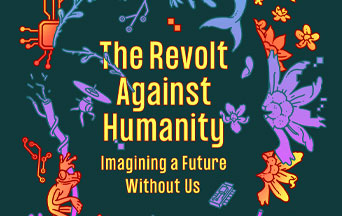Nineteenth-century liberalism sought to establish a regime where humanity would be freed from the restrictions of tradition, religion and social structures. That vision proposed the liberated individual as the supreme model and controller of personal destiny. It advanced the dream of a super-industrialised society that would facilitate that freedom so that all could be whatever they wanted to be. It excluded the official recognition of anything supernatural or spiritual.
Ironically, this is now turning into a kind of anti-humanism. It is found in the emphasis on control over human life, as seen in procured abortion, assisted suicide, euthanasia, the renunciation of child-bearing (already reflected in demographic trends), nihilism – the rejection of all religious and moral principles – the abandonment of civilisation, and in some forms of eco-extremism which see human existence itself as the problem.
In his book – The Revolt Against Humanity: Imagining a Future Without Us (Columbia Global Reports. January 2023) – writer Adam Kirsch documents the growing acceptance of the idea of human extinction. He writes: “From Silicon Valley boardrooms to rural communes to academic philosophy departments, a seemingly inconceivable idea is being seriously discussed: that the end of humanity’s reign on earth is imminent and that we should welcome it.”
Kirsch journeys through literature, philosophy, science, and popular culture, to identify two strands of thinking. One is ‘Anthropocene anti-humanism’ which says that our climate destruction has doomed humanity and we should welcome our extinction. (‘Anthropocene’ means the period during which human existence has had an impact on the planet).
The second strand is transhumanism which holds that genetic engineering and artificial intelligence will lead to new forms of life superior to humans who will be superfluous to requirements in the new utopia.
Nandita Bajaj, co-host of The Overpopulation Podcast, in a recent article for Newsweek wrote: “The notion that ‘you can have kids and fight climate change at the same time’ is meant to be empowering, but it ignores how unrestrained growth drives climate change and biodiversity collapse. Norms need to shift so that having fewer or no children is understood as a legitimate, positive choice and lower fertility is recognised as a path to a positive future. A critical discussion of outdated pronatalist norms and straight talk about how population growth drives environmental destruction are now as essential to our collective survival and prosperity as they are to reproductive rights.”
In his 2008 book – Better Never to Have Been (Oxford University Press) – the anti-natalist philosopher, David Benatar, argued that the disappearance of humanity would not deprive the universe of anything unique or valuable. “The concern that humans will not exist at some future time is either a symptom of the human arrogance … or is some misplaced sentimentalism… Things will someday be the way they should be – there will be no people,” he wrote.
Pro-abortion organisations are using the climate scare to promote their agenda.
In an interview on 6 February 2017, Fox News host, Tucker Carlson, asked Michael Brune, then Executive Director of the Sierra Club (an environmental organisation in the U.S.) what more abortion would do for the environment. He responded: “Well, it helps to address the number of people that we have on this planet. We feel that one of the ways in which we can get to a sustainable population is to empower women to make choices about their own families.”
The Centre for Biological Diversity published an article saying: “Human population growth is at the root of our most pressing environmental issues… Reproductive justice is environmental justice. In order to make sure we leave room for wildlife, it’s critical that every pregnancy is planned.” (‘Reproductive justice’ is interpreted to include abortion).
In September 1995, the ‘State of the World Forum’ was held in San Francisco hosted by the late Soviet Premier, Mikhail Gorbachev. It was attended by many of the world’s elite. The theme of the conference was “sustainable development.” In his opening remarks, Gorbachev candidly revealed the purpose of the conference saying: “… we shall have to address the problem of controlling the world’s population.”
In the closing plenary session of the forum, American philosopher and author, Sam Keen, provided a summary of the conference. He said: “There was very strong agreement that religious institutions have to take primary responsibility for the population explosion. We must speak far more clearly about sexuality, about contraception, about abortion, about the values that control the population, because the ecological crisis, in short, is the population crisis. Cut the population by 90pc and there aren’t enough people left to do a great deal of ecological damage.” To achieve all this, religion must be greatly weakened.
A new report from the Club of Rome, which long warned against ‘overpopulation’, has indicated that world population is set to peak at about 8.8 billion before mid-century and will then decline. There has been no ‘population bomb’, in other words. What we face instead is a demographic crisis which will result in the young having to look after a vast number of retired people. But this pleases those who would prefer there were far fewer human on the planet, and maybe even none at all.
(Matt Moran recently published a book – The Theology of Integral Human Development: the role of faith in international development and public affairs – that is available from www.buythebook.ie. He is currently working on another book – The Cultural Colonisation of Africa by the West).

















